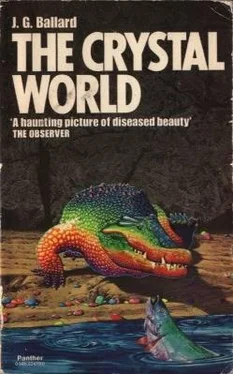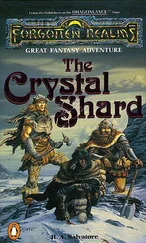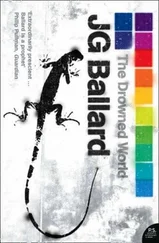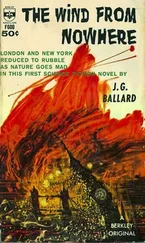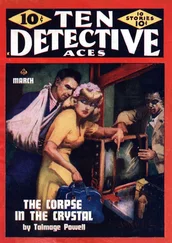"The priest. Balthus." Sanders turned to the sergeant as the latter opened the door. "What's he doing here?"
The sergeant paused for a moment, watching Sanders. "His parish is here, Doctor. Near the town. Surely we have to let him in?"
"Of course." Sanders collected himself. His sharp reaction to the arrival of the priest made him realize how far he already identified himself with the forest. He pointed to the civilians still finding their land-legs. "And the others?"
"Agriculture experts. They arrived at Port Matarre by flying boat this morning."
"Sounds like a big operation. Have you seen the forest, Sergeant?"
The sergeant held up his hand. "Captain Radek will explain, Doctor." He ushered Dr. Sanders across the corridor, then opened a door into a small waiting room and beckoned to Louise and Aragon. "Mlle.-please make yourself comfortable. I will have some coffee brought to you."
"But Sergeant, I have to-" Louise began to remonstrate with the sergeant, but Sanders put his hand on her shoulder.
"Louise, it's best if you wait here. I'll find Out all I can."
Aragon waved to Sanders. "We'll see you later, Doctor. I'll keep an eye on your suitcases."
Captain Radek was waiting for Dr. Sanders in his office. A doctor in the army medical corps, he was plainly glad to find another physician in the neighborhood.
"Sit down, Doctor, it's a pleasure to see you. First of all, to put your mind at rest, may I say that an inspection party will be leaving for the area in half an hour, and I have arranged for us to go with them."
"Thank you, Captain. What of Mlle. Peret? She-"
"I'm sorry, Doctor, but that won't be possible." Radek placed his hands palm-downwards on the metal desk, as if trying to draw some kind of resolution from its hard surface. A tall slimly built man with somewhat weak eyes, he seemed anxious to come to a personal understanding with Sanders, the pressure of events making it necessary to dispense with the usual preliminaries of friendship. "I'm afraid we are keeping all journalists out of the area for the time being. It's not my decision but I'm sure you understand. Perhaps I should add that there are a number of matters I cannot confide to you- our operations in this area, evacuation plans and so forth-but I will be as frank as possible. Professor Tatlin flew here direct from Libreville this morning-he is at the inspection site now-and I'm sure he will be glad of your opinion."
"I'll be glad to give it," Dr. Sanders said. "It's not exactly my field of specialty."
Radek made a limp gesture with one hand, then let it fall back onto the desk. In a quiet voice, out of deference to any feelings Sanders might have, he said: "Who knows, Doctor? It seems to me that the business here and your own specialty are very similar. In a way, one is the dark side of the other. I'm thinking of the silver scales of leprosy that give the disease its name." He straightened up. "Now, tell me, have you seen any of the crystallized objects?"
"Some flowers and leaves." Sanders decided not to mention the dead man that morning. However frank and likeable the young army doctor might seem, Sanders's first priority was to reach the jungle. If they suspected him even of some remote complicity in Matthieu's death he might well find himself sidetracked into an endless military investigation. "The native market is full of them. They're selling them as curios."
Radek nodded. "This has been going on for some time-nearly a year, in fact. First it was costume jewelry, then small carvings and holy objects. Recently there's been quite a trade here-the natives were taking cheap carvings into the active zone, leaving them there overnight and going back the next day for them. Unfortunately some of the stuff, the jewelry in particular, had a tendency to dissolve."
"The rapid movement?" Dr. Sanders queried. "I noticed that. A curious effect, the discharge of light. Disconcerting to some of the wearers."
Radek smiled. "It didn't matter with the costume jewelry, but some of the native miners started using the same technique on the small diamonds they smuggled out. As you know, the diamond mines here don't produce gem-stones, and everyone was naturally surprised when these huge rocks began to reach the market. The share prices on the Paris Bourse climbed to fantastic heights. That's how it all started. A man was sent to investigate and ended up in the river."
"There were vested interests?"
"There still are. We aren't the only people trying to keep this quiet. The mines here have never been particularly profitable-" Radek seemed about to reveal something, and then changed his mind, perhaps aware of Sanders's withdrawn manner. "Well, I think I can tell you, in confidence of course, that this is not the only affected area in the world. At this moment at least two other sites exist-one in the Florida Everglades, and the other in the Pripet Marshes of the Soviet Union. Naturally, both are under intensive investigation."
"Then the effect is understood?" Dr. Sanders asked.
Radek shook his head. "Not at all. The Soviet team is under the leadership of Lysenko. As you can imagine, he is wasting the Russians' time. He believes that non-inherited mutations are responsible, and that because there is an apparent increase in tissue weight, crop yields can also be increased." Radek laughed wearily. "I'd like to see some of those tough Russians trying to chew a piece of this crystallized glass."
"What is Tatlin's theory?"
"In general he agrees with the American experts. I spoke to him at the site this morning." Radek opened a drawer and tossed something from it across the desk to Sanders. It lay there like crystallized leather, giving off a soft light. "That's a piece of bark I show to visitors."
Dr. Sanders pushed it back across the desk. "Thank you, but I saw the satellite last night."
Radek nodded to himself. He scooped the bark back into the drawer with his ruler and closed it, obviously glad to have this exhibit out of sight. He brushed his fingers together. "The satellite? Yes, an impressive sight. Venus now has two lamps. Not only two either. Apparently at the Mount Hubble Observatory in the States they have seen distant galaxies efflorescing!"
Radek paused, collecting his energies with an effort. "Tatlin believes that this Hubble Effect, as they call it, is closer to a cancer than anything else-and about as curable-an actual proliferation of the sub-atomic identity of all matter. It's as if a sequence of displaced but identical images of the same object were being produced by refraction through a prism, but with the element of time replacing the role of light."
There was a knock on the door. The sergeant put his head through. "The inspection party is ready to leave, sir."
"Good." Radek stood up and took his cap from the peg. "We'll have a look, Doctor. I think you'll be impressed."
Five minutes later the party of visitors, some dozen in number, set off in one of the amphibian craft. Father Balthus was not among them, and Sanders assumed that he had left for his mission by road. However, when he asked Radek why they were not approaching Mont Royal by the highway the captain told him that the road was closed. In response to Sanders's request, the captain arranged to make contact by field telephone with the clinic where Suzanne and Max Clair were working. The owner of the mine near by, a Swedish-American by the name of Thorensen, would tell them of Sanders's arrival, and with luck Max would be at the wharf to meet him when they landed.
Radek had heard nothing of Anderson 's whereabouts. "However," he explained to Louise before they embarked, "we ourselves have had great difficulty in taking photographs-the crystals look like wet snow, in Paris they're still sceptical-so he may be hanging about somewhere, waiting for a convincing picture."
Читать дальше
Конец ознакомительного отрывка
Купить книгу
